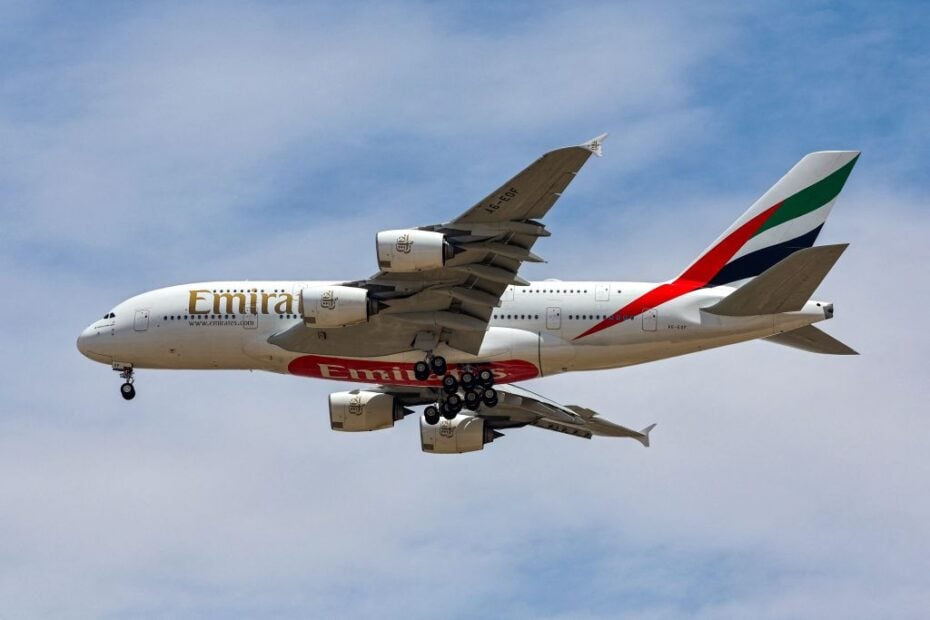
Image credit: GIUSEPPE CACACE/ Getty Images
Emirates Group, which owns the Middle East region’s largest airline, said on Thursday that its half-year profit before tax rose marginally to $2.8bn (Dhs10.4bn) for the first six months of 2024/25 on the back of robust demand for international travel despite geopolitical headwinds.
The group’s revenues in the first six months of its financial year jumped by 5 per cent to $19.3bn (Dhs70.8bn), driven by strong customer demand across business divisions and regions.
“We expect customer demand to remain strong for the rest of 2024-25, and we look forward to increasing our capacity to grow revenues as new aircraft join the Emirates fleet and new facilities come online at dnata,” said Sheikh Ahmed bin Saeed Al Maktoum, chairman and chief executive of Emirates Airline and Group.
“The group’s strong profitability enables us to make the investments necessary for our continued success. We’re investing billions of dollars to bring new products and services to the market for our customers.”
The company said it has been tapping its robust cash reserves to support business needs, including payments for new freighter aircraft orders and other debt payments. It closed the first half year of 2024/25 with a solid cash position of $11.9bn.
The aviation group paid a dividend of Dhs2 billion to its owner, the Dubai Government, as declared at the end of its 2023/24 financial year.
Profit before tax at the airline business rose 2 per cent to Dhs9.7bn in the first six months of its financial year, while earnings at ground-handling and operations business Dnata dropped by 5 per cent to Dhs720m.
Emirates Airline, which relies on its vast global network and does not have any domestic routes, has been enjoying huge passenger flows through its hub in Dubai. It carried 26.9 million passengers between April 1 and September 30, up 3 per cent from the same period last year.
The airline’s cargo division transported 1.2 million tonnes in the first six months of the year, up 16 per cent from the same period a year ago, driven by Chinese solid eCommerce demand and a rise in shipments bound for Dubai.
Emirates still has a large fleet of aircraft on order, mainly for the still-uncertified Boeing 777X model. The airline’s President Tim Clark criticised Boeing earlier in October over a cumulative six-year delay to the 777X as the planemaker wrestles with industrial and financial crisis.
The 777X is crucial to Emirates’ future wide-body fleet. The airline has built its fleet around two main models: the Boeing 777 and the Airbus A380 double-decker.
However, with the delay in Boeing’s next-generation 777 model and the discontinuation of the A380 by Airbus, Emirates is investing more than $3bn in a comprehensive retrofit program aimed at rejuvenating 191 Boeing 777 and Airbus A380 aircraft.
Read: Qatar Airways posts $1.7bn in full-year profit on robust travel demand

